Home>Articles>How To Store Extra Virgin Olive Oil After Opening


Articles
How To Store Extra Virgin Olive Oil After Opening
Modified: January 18, 2024
Discover the best methods for storing your extra virgin olive oil after opening. Read our informative articles to ensure your oil stays fresh and flavorful for longer.
(Many of the links in this article redirect to a specific reviewed product. Your purchase of these products through affiliate links helps to generate commission for Storables.com, at no extra cost. Learn more)
Introduction
Welcome to the world of extra virgin olive oil! If you’ve recently discovered the wonders of this flavorful and nutritious oil, you may be wondering how to properly store it to maintain its quality and freshness. In this article, we will explore the importance of storing extra virgin olive oil correctly and provide you with essential tips to ensure that it stays in optimal condition.
Extra virgin olive oil is known for its distinctive taste, rich aroma, and numerous health benefits. It is made from the pressing of olives, without the use of heat or chemicals, resulting in a pure and unrefined oil. This process preserves the natural antioxidants, vitamins, and minerals found in olives, which are beneficial for our overall well-being.
When it comes to enjoying the full benefits and flavors of extra virgin olive oil, proper storage is crucial. Exposure to certain environmental factors such as light, heat, air, and contaminants can lead to oxidation, degradation of quality, and even spoilage of the oil.
So, how can you ensure that your bottle of extra virgin olive oil remains fresh and delicious for as long as possible? Let’s dive into the factors that affect its shelf life and uncover the best practices for storing this liquid gold.
Key Takeaways:
- Proper storage of extra virgin olive oil is crucial to maintain its exceptional quality, flavors, and health benefits. Factors such as light, temperature, oxygen exposure, contamination, and time can all affect the shelf life and quality of the oil.
- By investing a little extra care and attention in the storage of extra virgin olive oil, you can enjoy its exceptional taste, health benefits, and culinary versatility to the fullest. Choose the right storage container, protect the oil from light, maintain proper temperature, avoid exposure to oxygen, prevent contamination, and check for signs of rancidity to ensure the oil remains fresh and delicious.
Read more: How To Store Extra Virgin Olive Oil
Understanding Extra Virgin Olive Oil
Before we delve into the intricacies of storing extra virgin olive oil, it’s important to understand what sets it apart from other types of olive oil. Extra virgin olive oil is the highest quality and most desirable form of olive oil. It is obtained through a careful process of cold pressing and does not undergo any refining or chemical treatment.
One of the key characteristics of extra virgin olive oil is its low acidity level, typically below 0.8%. This indicates that the oil is made from top-quality olives and has undergone minimal processing. It also contributes to the oil’s exceptional flavor, aroma, and health benefits.
Extra virgin olive oil is prized for its high concentration of monounsaturated fats, which are considered heart-healthy. These fats can help to lower LDL cholesterol levels and reduce the risk of heart disease. Additionally, it contains powerful antioxidants like polyphenols, which have anti-inflammatory properties and may offer protection against chronic diseases.
The flavor profile of extra virgin olive oil can vary depending on the type of olives used, as well as factors such as climate, soil conditions, and harvesting methods. It can range from mild and buttery to robust and peppery, offering a versatile and dynamic addition to various culinary creations.
When purchasing extra virgin olive oil, it’s important to look for reputable brands or labels that indicate third-party certification. This ensures that the oil has met strict quality standards and has not been adulterated or blended with inferior oils.
Now that we have a better understanding of what makes extra virgin olive oil special, let’s explore why proper storage is essential to preserve its exceptional qualities.
Why Proper Storage is Important
Proper storage is crucial to maintain the quality, freshness, and health benefits of extra virgin olive oil. Here are a few key reasons why it’s important to store this precious liquid correctly:
- Prolongs Shelf Life: Extra virgin olive oil has a limited shelf life due to its natural composition. It contains delicate unsaturated fats that are prone to oxidation when exposed to heat, light, and air. By storing it properly, you can extend its shelf life and enjoy its exceptional flavors and benefits for a longer period.
- Preserves Flavor and Aroma: Extra virgin olive oil is cherished for its distinct flavors and aromas. However, exposure to improper storage conditions can cause the oil to become rancid or develop off-flavors. By protecting it from harmful factors, you can preserve its original taste and scent.
- Maintains Nutritional Value: The natural antioxidants, vitamins, and minerals in extra virgin olive oil contribute to its health-promoting properties. When stored improperly, these valuable nutrients can degrade, reducing the oil’s nutritional value. Proper storage helps retain these beneficial components, ensuring you reap the full health benefits.
- Cost-effective: Extra virgin olive oil is often more expensive compared to other types of cooking oils. By storing it properly, you can avoid wastage and have a fresh supply on hand when needed. This not only saves money but also ensures you have premium-quality oil for your culinary creations.
- Eco-friendly: Optimal storage conditions for extra virgin olive oil also contribute to sustainability efforts. By avoiding spoilage, you minimize the need to discard oil that has gone bad. This reduces waste and supports a more environmentally friendly approach to consuming this valuable resource.
Now that we understand the importance of proper storage, let’s explore the factors that can affect the shelf life of extra virgin olive oil.
Factors Affecting Extra Virgin Olive Oil Shelf Life
Several factors can influence the shelf life and overall quality of extra virgin olive oil. It’s important to be aware of these factors to ensure proper storage and maximize the longevity of your oil. Here are the key factors that can affect the shelf life of extra virgin olive oil:
- Exposure to Light: Extra virgin olive oil is sensitive to light, especially ultraviolet (UV) rays. Prolonged exposure to light can promote oxidation and degradation of the oil, leading to a decrease in quality and flavor.
- Temperature: High temperatures accelerate the oxidation process in extra virgin olive oil. Exposure to heat, such as from a stovetop or direct sunlight, can cause the oil to break down and become rancid more quickly.
- Oxygen Exposure: The presence of oxygen can also contribute to the oxidation of extra virgin olive oil. When the oil is in contact with air, the oxygen molecules interact with the oil, leading to the formation of free radicals and degradation of the oil’s quality.
- Contamination: Exposure to contaminants, such as water, dust, or food particles, can introduce unwanted flavors and even promote the growth of bacteria or molds in the oil. It’s important to store extra virgin olive oil in a sealed container to protect it from potential contamination.
- Time: Over time, even under ideal storage conditions, extra virgin olive oil will naturally undergo gradual changes. While proper storage can help slow down this process, it’s still important to use the oil within a reasonable timeframe to ensure freshness and optimal quality.
Now that we have a clear understanding of the factors that can affect the shelf life of extra virgin olive oil, let’s explore the essential tips for storing it properly.
Essential Tips for Storing Extra Virgin Olive Oil
To maintain the quality and freshness of your extra virgin olive oil, it’s crucial to store it properly. Here are some essential tips to follow:
- Choose the Right Storage Container: Use airtight containers made of dark glass or stainless steel specifically designed for storing oils. These containers protect the oil from light exposure and help maintain its quality for a longer period. Avoid using containers made of plastic or clear glass, as they allow light to penetrate and can lead to faster degradation.
- Protect the Oil from Light: Store extra virgin olive oil in a cool, dark place away from direct sunlight. Excessive exposure to light can accelerate the oxidation process and cause the oil to deteriorate quickly. A pantry or a cupboard away from heat sources is an ideal location.
- Maintain Proper Temperature: Temperature plays a crucial role in preserving the freshness of extra virgin olive oil. Aim to store it in an environment with a consistent temperature of around 57°F to 68°F (14°C to 20°C). Avoid storing the oil near stovetops, ovens, or other sources of heat that can elevate the temperature and degrade the oil’s quality.
- Avoid Exposure to Oxygen: Oxygen exposure can lead to the oxidation and degradation of extra virgin olive oil. When transferring the oil to a storage container, make sure to fill it up to the brim to minimize the amount of air in the container. Seal it tightly to prevent any additional oxygen from entering.
- Prevent Contamination and Spoilage: Ensure that the container and any utensils used for handling the oil are clean and dry. Keep the bottle cap or lid tightly closed when not in use to prevent contamination and maintain the oil’s freshness. Avoid using dirty or wet spoons or pouring the oil into a dirty dish, as this can introduce contaminants and compromise the quality.
- Check for Signs of Rancidity: Regularly check the aroma and taste of your extra virgin olive oil. If you notice any off-flavors, a rancid smell, or a change in color, it may indicate that the oil has gone bad and should be discarded. Fresh extra virgin olive oil should have a pleasant, fruity aroma and a clean, vibrant taste.
By following these essential tips, you can extend the shelf life of your extra virgin olive oil and ensure that it remains fresh, flavorful, and nutritious.
Now that you are equipped with the knowledge of proper storage, you can confidently enjoy the remarkable qualities of extra virgin olive oil in your culinary creations. Choose your storage container wisely, protect it from light and heat, avoid oxygen exposure, prevent contamination, and regularly check for signs of rancidity. By implementing these tips, you’ll be able to savor the exquisite flavors and reap the health benefits of this liquid gold!
Read more: How To Store Black Olives After Opening
Choosing the Right Storage Container
When it comes to storing extra virgin olive oil, choosing the right container is essential to maintain its quality and prolong its shelf life. Here are some factors to consider when selecting a storage container:
- Type of Material: Opt for a storage container made of dark glass or stainless steel. These materials help to protect the oil from exposure to light, which can degrade its quality. Dark glass, such as amber or green, is particularly effective in blocking out harmful UV rays.
- Airtight Seal: Ensure that the container has a tight and secure lid or cap to create an airtight seal. This helps to minimize the contact of the oil with air and prevents oxidation, which can lead to a decrease in quality and flavor.
- Size and Shape: Choose a container size that suits your needs. It’s better to opt for smaller containers, as they minimize the amount of air in contact with the oil, reducing the risk of oxidation. Additionally, consider a container with a narrower opening to further limit the oil’s exposure to air.
- Opaque or Tinted: Look for containers that are opaque or tinted. This prevents light from penetrating the container and affecting the oil’s freshness and flavor. Transparent or clear containers should be avoided, as they allow light to enter and can speed up the oxidation process.
- Quality and Brand: Choose a reputable brand or high-quality storage container to ensure that it is designed specifically for storing olive oil. Look for containers that are labeled as suitable for oil storage or those recommended by olive oil experts or producers.
By selecting the right storage container, you can protect your extra virgin olive oil from light, air, and contaminants, preserving its exceptional flavor, aroma, and nutritional benefits. Remember to keep the container tightly sealed when not in use and store it in a cool, dark place away from heat sources.
Now that you know how to choose the right storage container for your extra virgin olive oil, let’s explore another crucial aspect of proper storage: protecting the oil from light.
Store extra virgin olive oil in a cool, dark place away from heat and light to prevent oxidation. Use a dark glass bottle to further protect it from light exposure.
Protecting Extra Virgin Olive Oil from Light
Light is one of the primary factors that can negatively affect the quality and shelf life of extra virgin olive oil. Exposure to light, particularly ultraviolet (UV) rays, can cause oxidation and deterioration of the oil’s flavor and nutritional benefits. To protect your extra virgin olive oil from light, follow these essential tips:
- Choose a Dark Storage Container: Opt for storage containers made of dark glass, such as amber or green. These dark-colored containers help to block out harmful UV rays and prevent light from reaching the oil. Avoid transparent or clear containers, as they do not provide adequate protection from light exposure.
- Store in a Dark Place: Find a cool, dark spot in your kitchen or pantry to store the olive oil. Avoid placing it near windows or areas that receive direct sunlight. Sunlight can accelerate the oxidation process and degrade the quality of the oil. A cupboard or a closed cabinet is an ideal location to protect the oil from light exposure.
- Minimize Exposure to Light: Whenever you use the oil, try to minimize the time it spends exposed to light. Take the necessary amount of oil out of the storage area quickly and then secure the container promptly. Keeping the oil in the dark as much as possible helps to maintain its freshness and flavor.
- Consider Using Opaque Dispensers: If you prefer to decant your extra virgin olive oil into another container or dispenser for easy pouring or serving, choose an opaque dispenser made of dark glass or opaque plastic. This reduces the oil’s exposure to light during use and ensures its continued protection.
- Avoid Displaying in Direct Light: If you have decorative bottles or containers of extra virgin olive oil that are meant for display purposes, ensure they are kept away from direct sunlight. These containers may not always provide the same level of light protection as storage containers specifically designed for olive oil.
By taking these steps to protect your extra virgin olive oil from light, you can preserve its exceptional flavor, aroma, and nutritional value. Remember, light exposure should be minimized throughout the oil’s storage, use, and display.
Now that we have covered the importance of protecting extra virgin olive oil from light, let’s explore the next critical aspect of proper storage: maintaining the correct temperature.
Maintaining Proper Temperature for Storage
The temperature at which you store your extra virgin olive oil plays a significant role in maintaining its freshness and quality. Fluctuations in temperature can speed up the oxidation process and degrade the oil’s flavor, aroma, and nutritional benefits. To ensure you store your oil at the right temperature, consider the following tips:
- Cool and Consistent Environment: Store your extra virgin olive oil in a cool and consistent environment. Aim for a storage temperature of around 57°F to 68°F (14°C to 20°C). Avoid storing it in areas that experience extreme temperatures or fluctuating heat, such as near stovetops, ovens, or heating vents.
- Avoid Heat Exposure: Heat is one of the main culprits that can degrade the quality of extra virgin olive oil. Exposure to high temperatures can speed up the oxidation process and cause the oil to become rancid. Ensure your storage location is away from direct sunlight and any heat sources in your kitchen.
- Consistency is Key: Fluctuations in temperature can be just as damaging as prolonged exposure to high temperatures. It’s important to maintain a consistent storage temperature for your extra virgin olive oil. Avoid moving it frequently from hot to cold areas as this can lead to condensation, which may affect the oil’s quality.
- Refrigeration Consideration: While it’s not necessary to refrigerate extra virgin olive oil, you can choose to store it in the refrigerator if you prefer a lower storage temperature. However, keep in mind that refrigeration can cause the oil to solidify, which can affect its texture. If you do refrigerate the oil, make sure to allow it to come to room temperature before use.
- Monitor Storage Location: Regularly check the storage location of your extra virgin olive oil for any changes in temperature. Keep an eye out for areas that may experience temperature fluctuations, such as near radiators or heating vents, and ensure the oil is not stored in such areas.
By maintaining the proper temperature for storing your extra virgin olive oil, you can prolong its shelf life and preserve its exceptional flavors and health benefits. Remember, consistency and avoiding heat exposure are key factors in ensuring the oil remains fresh and of the highest quality.
Now that we have covered temperature, let’s move on to another important aspect of proper storage: avoiding exposure to oxygen.
Avoiding Exposure to Oxygen
Oxygen is a significant contributor to the oxidation process in extra virgin olive oil, leading to a decrease in quality, flavor, and nutritional benefits. To preserve the freshness and integrity of your oil, it’s important to minimize its exposure to oxygen. Here are some essential tips to help you avoid oxygen exposure:
- Use airtight containers: Transfer your extra virgin olive oil to a storage container that has a tight-fitting lid or cap. Make sure the container is airtight to prevent oxygen from getting inside. This reduces the risk of oxidation and maintains the oil’s quality.
- Fill the container to the brim: When transferring the oil to a storage container, ensure that the container is filled as close to the top as possible. This minimizes the amount of air in the container, reducing the oil’s exposure to oxygen. Make sure to leave minimal headspace to limit oxidation.
- Secure the lid or cap tightly: After filling the container with extra virgin olive oil, seal it tightly to create a strong barrier against oxygen. Check that the lid or cap is securely fastened to prevent any air from entering the container over time.
- Avoid frequent opening: Try to minimize frequent opening of the storage container. Each time you open the container, oxygen can enter and come into contact with the oil. Only open the container when you need to use the oil and promptly seal it afterward to limit oxygen exposure.
- Consider smaller containers: Storing extra virgin olive oil in smaller containers allows you to use it up more quickly, reducing the amount of time the oil is exposed to oxygen. If you purchase oil in larger quantities, consider transferring it into smaller bottles for everyday use.
By following these tips, you can minimize the exposure of your extra virgin olive oil to oxygen, prolonging its shelf life and preserving its exceptional qualities. Remember, limiting oxygen exposure helps maintain the oil’s freshness, flavor, and nutritional benefits.
Now that we’ve covered avoiding oxygen exposure, let’s move on to the next crucial aspect of proper storage: preventing contamination and spoilage.
Read more: How To Store Olive Oil
Preventing Contamination and Spoilage
Properly storing extra virgin olive oil involves taking steps to prevent contamination and spoilage. By implementing the following practices, you can maintain the quality and integrity of your oil:
- Ensure cleanliness: Before transferring the oil to a storage container, ensure that the container is clean and dry. Any residual moisture or contaminants can spoil the oil. Also, make sure your hands and utensils used for handling the oil are clean to avoid introducing any unwanted substances.
- Secure container lids: Store extra virgin olive oil in containers that have tight-fitting lids or caps. This prevents any dust, dirt, or insects from entering and contaminating the oil. Inspect the lids periodically to ensure they are intact and functioning properly.
- Avoid air exposure: Exposure to air can accelerate the oxidation process and lead to spoilage. When pouring the oil, do it quickly and minimize the amount of time the container remains open. Additionally, make sure to close the container tightly after each use to prevent unnecessary exposure to air.
- Separate from strong odors: Store extra virgin olive oil away from strong-smelling substances, such as garlic, onions, or cleaning chemicals. Olive oil can absorb odors easily, which may alter its flavor and aroma. Keep it in a separate area to maintain its characteristic taste and aroma.
- Avoid cross-contamination: When using extra virgin olive oil, be mindful of avoiding cross-contamination. Use clean utensils or separate pour spouts for dispensing the oil to prevent transferring any contaminants or flavors from other substances.
- Refill as needed: If you decant your oil into a separate dispenser or bottle, refill it as needed rather than topping it off. This helps to minimize the opportunity for contaminants to enter the dispenser and ensures that only fresh oil is dispensed for use.
By taking these preventive measures, you can minimize the risk of contamination and spoilage, keeping your extra virgin olive oil fresh and flavorful for longer. Regularly inspect your containers and check for any signs of spoilage, such as a rancid smell or off-flavors.
Now that we have covered preventing contamination and spoilage, let’s move on to the next vital aspect of proper storage: checking for signs of rancidity.
Checking for Signs of Rancidity
Regularly checking for signs of rancidity is an important step in proper storage and maintenance of extra virgin olive oil. Over time, exposure to oxygen, light, and other unfavorable conditions can cause the oil to become rancid. Here’s how you can check for signs of rancidity:
- Look for changes in color: Fresh extra virgin olive oil has a vibrant golden or greenish hue, depending on the type of olives used. If you notice that the color has turned significantly darker or has a brownish tint, it may indicate that the oil is rancid.
- Check for off-flavors and odors: Take a sniff of the oil to detect any off-putting smells. Fresh extra virgin olive oil should have a pleasant, fruit-like aroma. If you detect a rancid or musty smell, it is a sign that the oil has gone bad.
- Taste for unusual flavors: To further assess the quality of the oil, take a small sip and pay attention to the flavor. Rancid oil often has a sour, bitter, or unpleasant taste. If the oil tastes off or leaves a lingering unpleasant aftertaste, it is likely rancid.
- Consider the expiration date: Check the expiration date on the bottle of extra virgin olive oil. While this date is not always accurate, it can provide a general guideline for assessing the oil’s freshness. If the oil has passed its expiration date, it is recommended to check for signs of rancidity.
- Observe changes in consistency or texture: Rancid olive oil may thicken or become syrupy over time. If you notice a significant change in consistency or a sticky texture, it could indicate that the oil has deteriorated.
If you detect any of these signs of rancidity, it is best to discard the oil. Using rancid olive oil can negatively impact the taste and quality of your dishes, as well as potentially cause digestive discomfort.
Regularly monitoring the quality of your extra virgin olive oil ensures that you are using fresh and flavorful oil in your cooking. By being aware of the signs of rancidity, you can enjoy the full benefits of this elixir while maintaining culinary excellence.
Now that we have covered how to check for signs of rancidity, let’s conclude our discussion on storing extra virgin olive oil.
Conclusion
Proper storage of extra virgin olive oil is essential to maintain its exceptional quality, flavors, and health benefits. By following the essential tips and practices outlined in this article, you can ensure that your oil remains fresh and delicious for an extended period.
Understanding what sets extra virgin olive oil apart and why proper storage is important allows you to make informed choices when purchasing, handling, and storing this precious liquid. Factors such as light, temperature, oxygen exposure, contamination, and time can all affect the shelf life and quality of extra virgin olive oil.
Choosing the right storage container, protecting the oil from light, maintaining the proper temperature, avoiding exposure to oxygen, preventing contamination, and checking for signs of rancidity are all crucial steps in proper storage. These practices help to preserve the oil’s exceptional flavors, aromas, nutritional benefits, and prolong its shelf life.
By investing a little extra care and attention in the storage of your extra virgin olive oil, you can enjoy its exceptional taste, health benefits, and culinary versatility to the fullest. Take the time to select a suitable storage container, store the oil in a cool, dark place, and ensure minimal exposure to oxygen and contaminants.
Always be vigilant and check for any signs of rancidity, such as changes in color, off-flavors, or unusual odors. If you detect any of these signs, it’s best to discard the oil and replenish it with fresh, high-quality extra virgin olive oil.
With the proper storage and handling techniques, you can savor the remarkable qualities of extra virgin olive oil, elevate your culinary creations, and make the most of its numerous health benefits. So go ahead, embrace the liquid gold, and let its delicious flavors enhance your cooking and nourish your well-being.
Frequently Asked Questions about How To Store Extra Virgin Olive Oil After Opening
Was this page helpful?
At Storables.com, we guarantee accurate and reliable information. Our content, validated by Expert Board Contributors, is crafted following stringent Editorial Policies. We're committed to providing you with well-researched, expert-backed insights for all your informational needs.

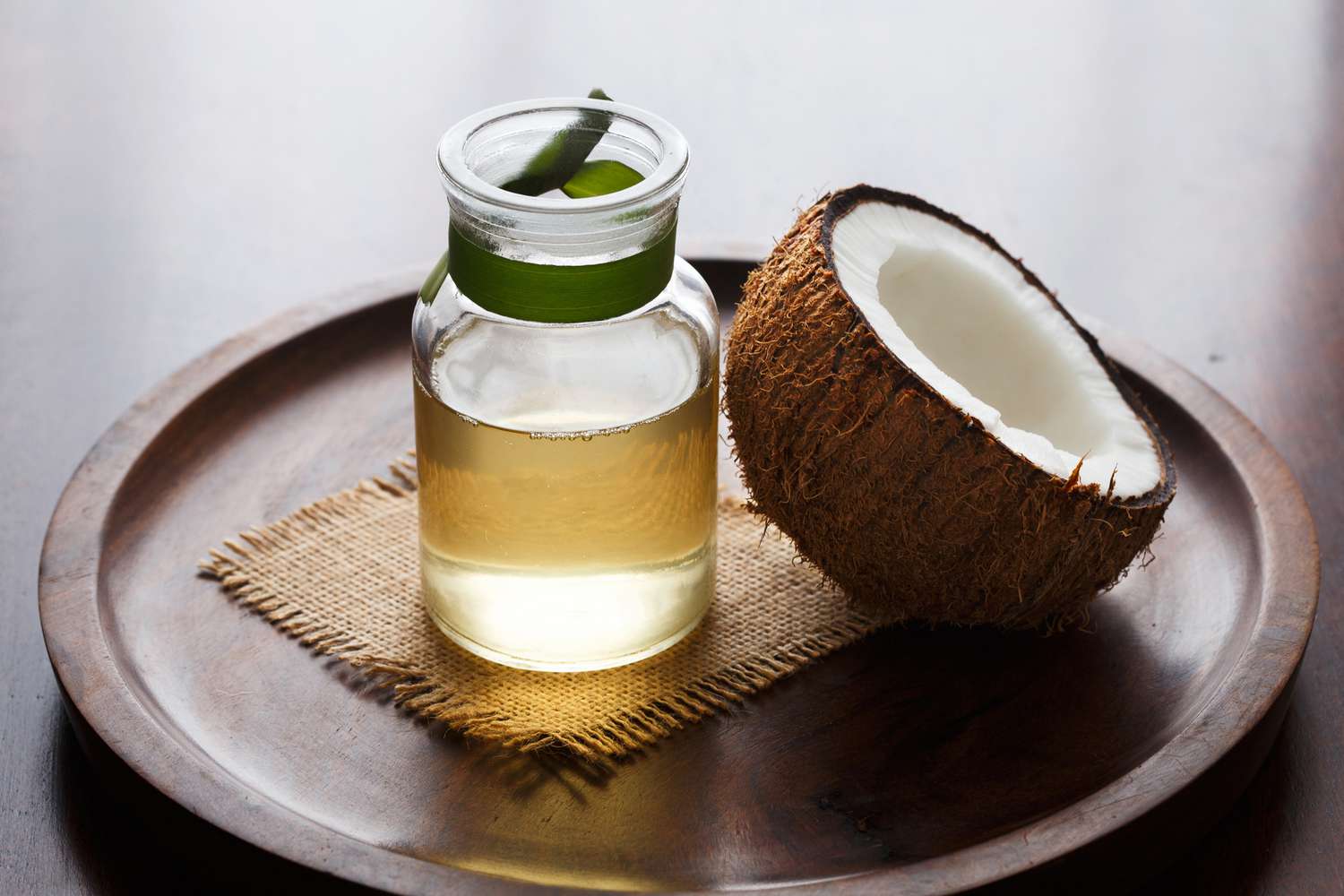


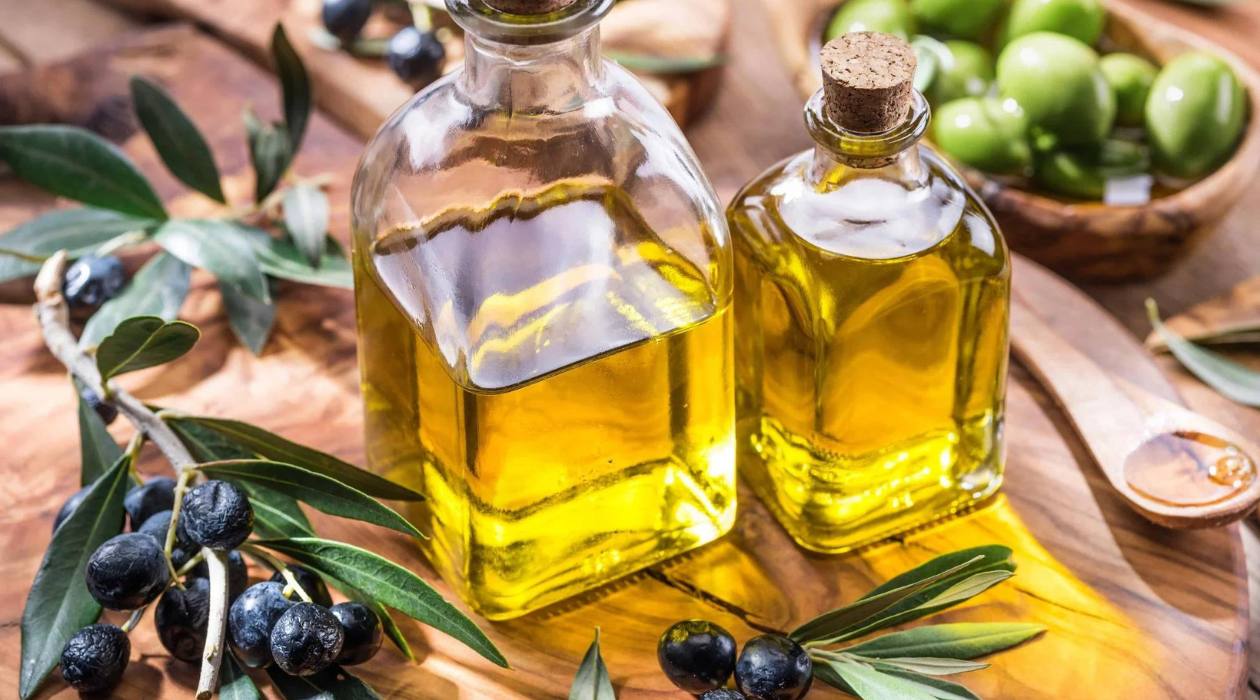

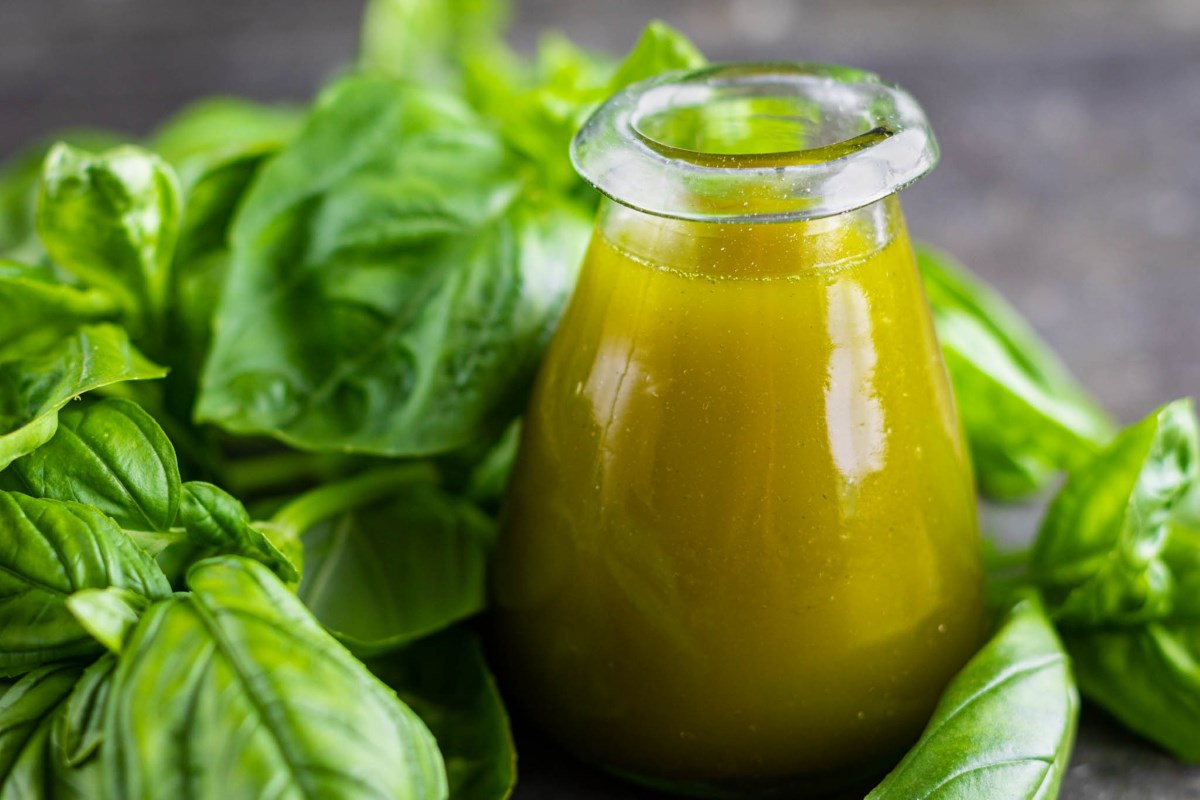
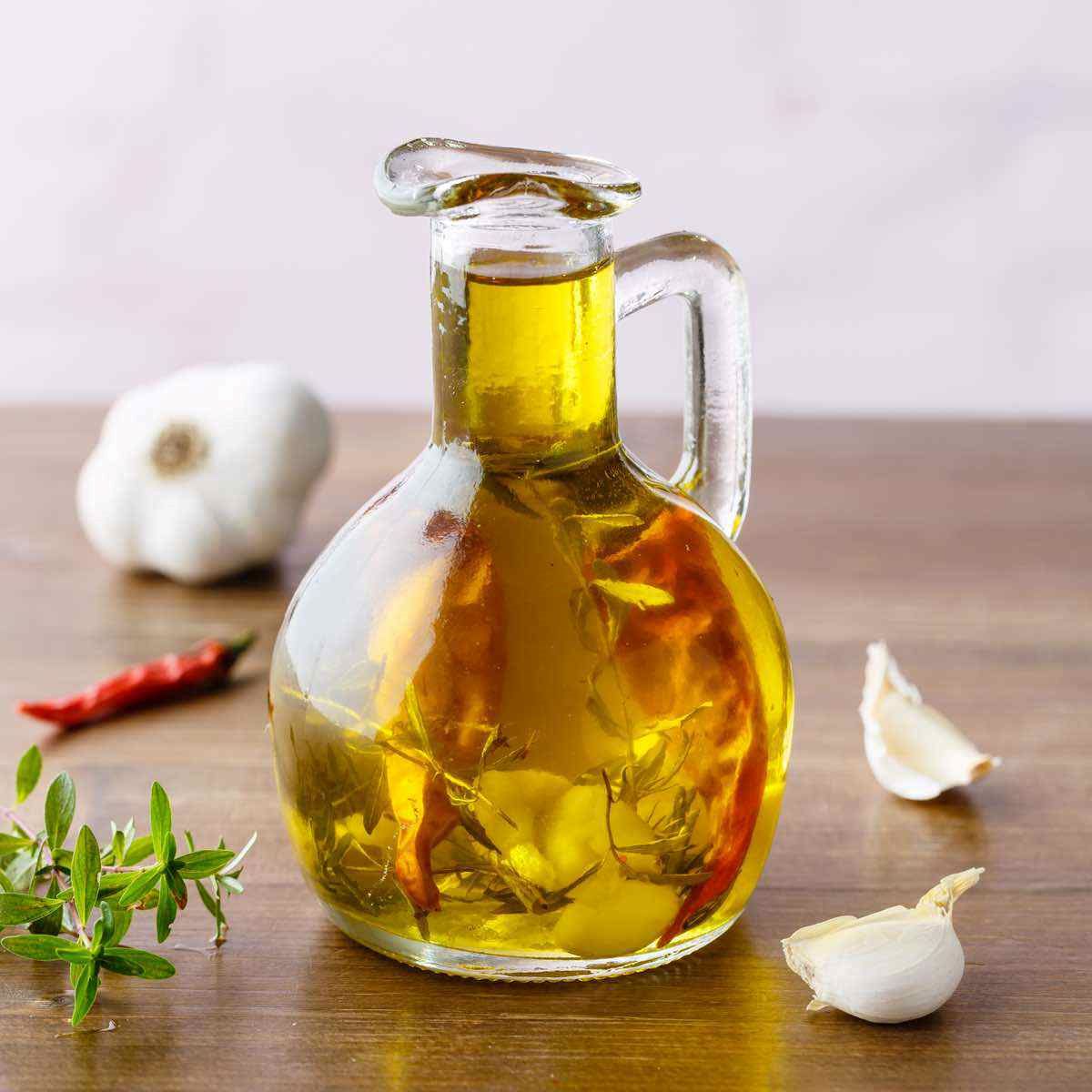



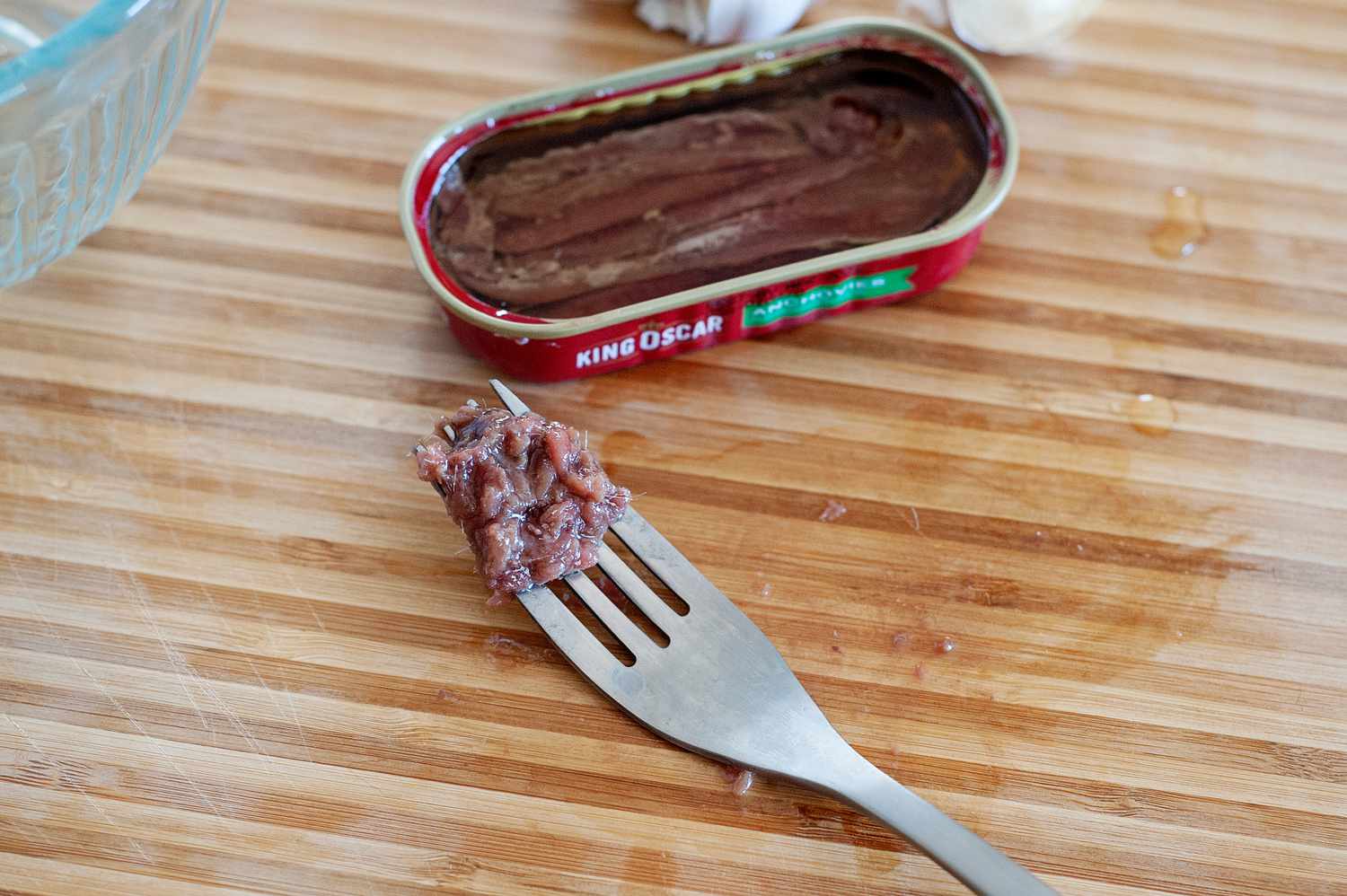
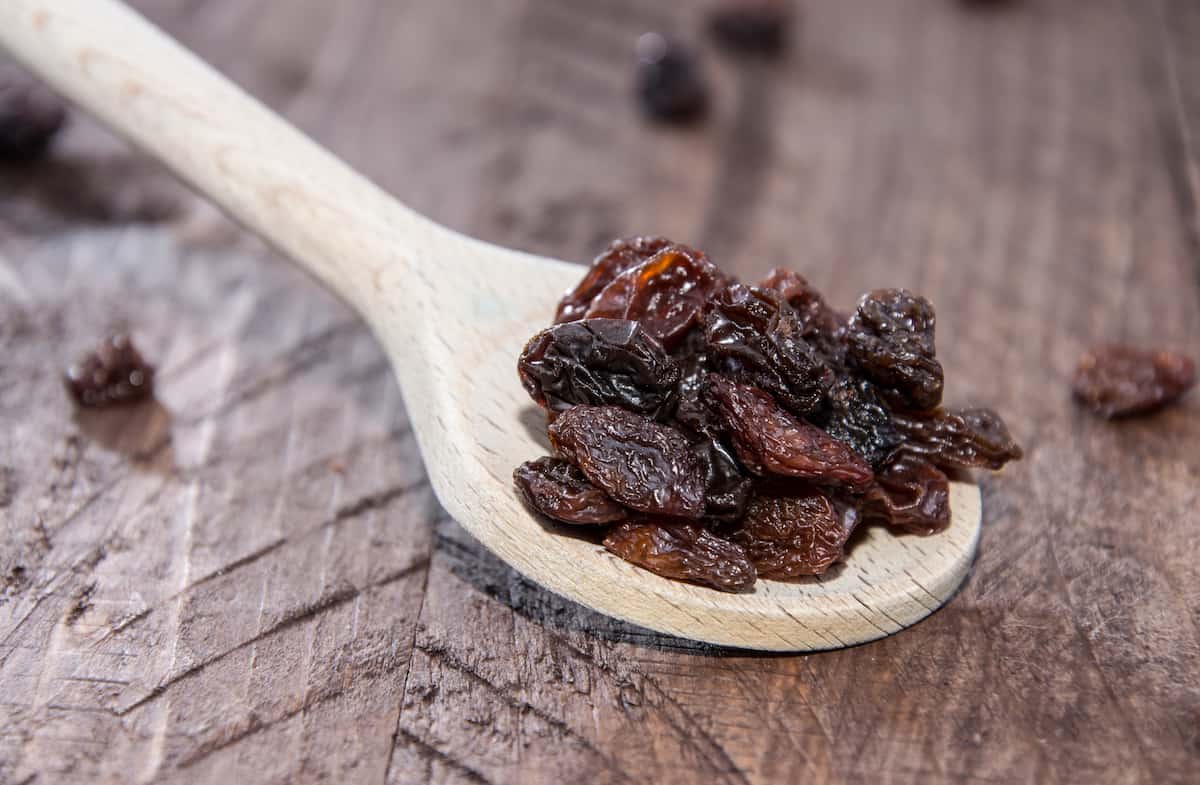

0 thoughts on “How To Store Extra Virgin Olive Oil After Opening”